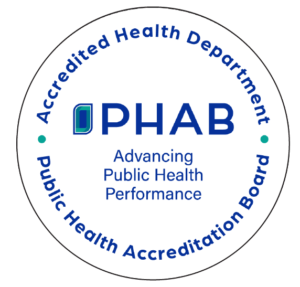The Lake County General Health District (LCGHD) licenses and inspects over 100 pools and spas. All public pools are inspected twice a year and include those associated with municipalities, hotels, campgrounds, and other recreational areas. Inspections focus on health and safety including disinfectant levels, pH, total alkalinity, calcium hardness, cyanuric acid, and temperature. Facilities are also inspected for compliance in regards to chemical storage, pump and filter rooms, weekly operation logs, and safety equipment.
Facilities included under the LCGHD Swimming Pool Program include:
Pool Safety
The Importance of Pool Safety
Drowning is the leading cause of unintentional death in children ages one to four in the United States. It is the second leading cause of unintentional injury death in children ages five to fourteen nationally. Survivors of severe drowning incidents have experienced long-term disabilities, including memory problems, learning deficiencies, and loss of basic cognitive functioning. Additional Healthy Swimming Tips from the Centers for Disease Control and Prevention (CDC) are also available.
Drowning Prevention
Pool Safety is a national public education campaign that works with partners around the country to reduce child drownings and entrapments in swimming pools and spas. Visit their site for safety tips for parents and learning activities for children. Drowning Prevention Tips from the Centers for Disease Control and Prevention (CDC) are also available and applicable to both residential and public swimming.
Incident Reports
Any incident associated with a public swimming pool or spa facility in Lake County that requires medical treatment beyond first aid should be reported to the Lake County General Health District within 72 hours following the incident. The report is to be done by the pool or spa operator. The Ohio Department of Health Pool injury incident reporting form can be found by visiting the following link: Form for Reporting Ohio Pool & Spa Injuries
Recreational Water Illnesses
Recreational Water Illnesses
Germs spread by swallowing, breathing in mists or aerosols of, or having contact with contaminated water in swimming pools, hot tubs, water parks, water play areas, interactive fountains, lakes, rivers, or oceans can cause recreational water illnesses (RWIs). RWI infections can include gastrointestinal, skin, ear, respiratory, eye, neurologic, and wound infections. Diarrhea is the most commonly reported RWI. Diarrheal illnesses can be caused by parasites, bacteria, or viruses. Crypto (short for Cryptosporidium, Giardia, Shigella, norovirus and E. coli are examples of RWIs that cause diarrhea.
Safety Precautions to Prevent RWIs
All swimmers should shower with soap before swimming and make sure hands are washed after using the bathroom or changing diapers. It is also important to avoid swallowing the pool water. If you are the parent of young children, take kids on frequent bathroom breaks and check diapers often. If a diaper needs to be changed, do so in the restroom, not poolside.

For Owners & Operators
Helpful Forms
The Ohio Department of Health (ODH) provides forms to be used by operators and local health departments. The Pool Equipment Notification Report form, Pool & Spa Inspection form, Pool Equipment Inventory form, and Weekly Operation and Incident Report form can all be found at the following link: ODH Public Swimming Pools- Forms The ODH Injury Reporting form can be found by visiting the following link. Public pool and spa operators are responsible for completing the report within 72 hours of an injury requiring medical attention beyond first aid. Form for Reporting Ohio Pool & Spa Injuries For more information, visit ODH Public Swimming Pools.
Swimming Pool and Spa Inspections
Inspections of swimming pools and spas are conducted based on Chapter 3749 and Chapter 3701-31 of the Ohio Administrative Code.
The Virginia Graeme Baker Pool & Spa Safety Act
The Virginia Graeme Baker Pool & Spa Safety Act (P&SS Act) was designed to prevent the tragic and hidden hazard of drain entrapments and eviscerations in pools and spas. The law became effective on December 19, 2008. The U.S. Consumer Product and Safety Commission (CPSC) provides a list of American Society of Medical Engineers (ASME)/ American National Standards Institute (ANSI) approved drain covers and ASME/ANSI/ American Society for Testing and Materials (ASTM) approved safety vacuum release systems that comply with the P&SS Act. CPSC-Approved Drain Covers and Vacuum Release Systems
Additional Resources:



